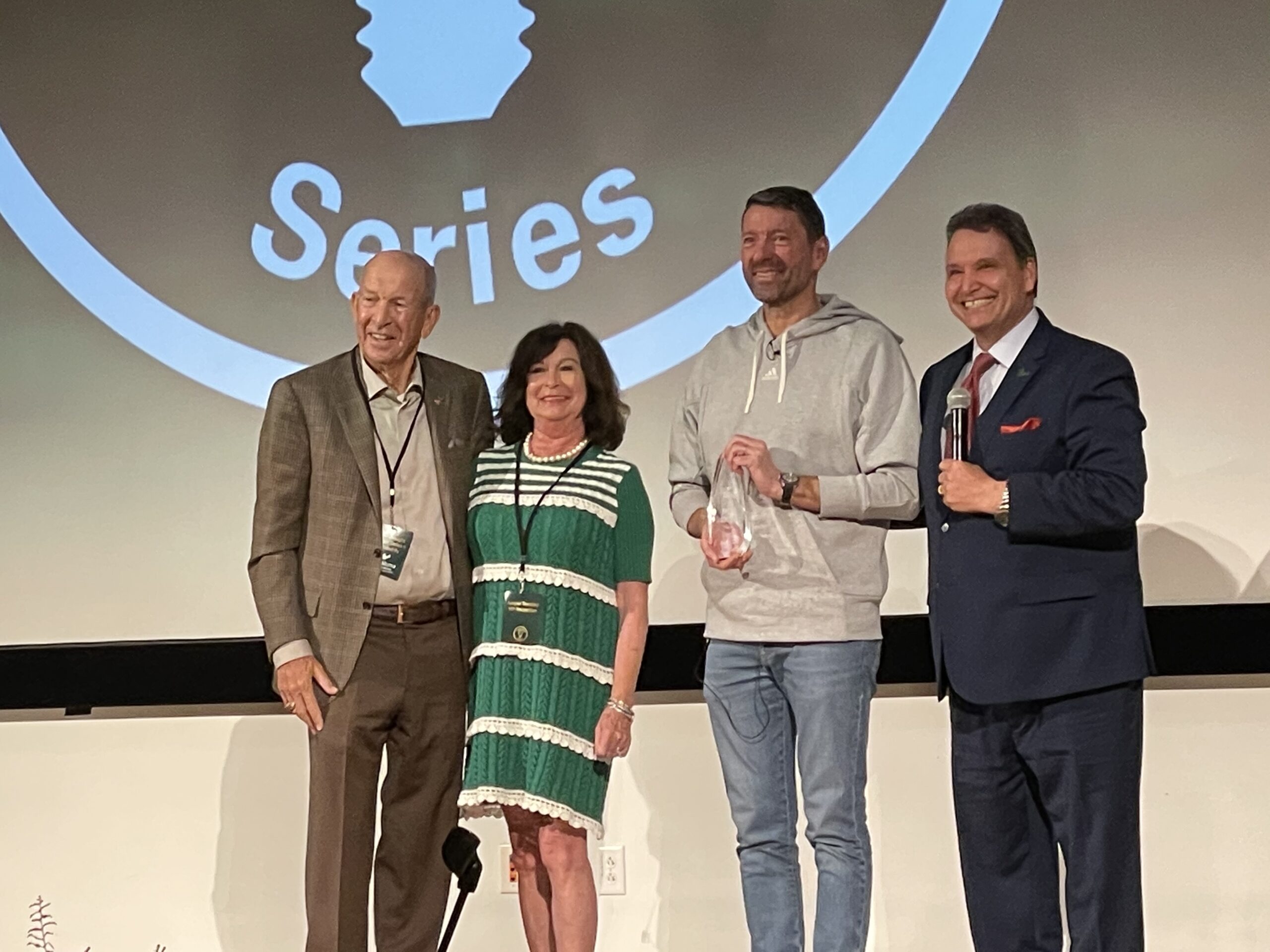Adidas CEO Kasper Rørsted talks balancing priorities, business

Excited to speak to the university that represents the three stripes in competition, Adidas CEO Kasper Rørsted shared the importance of keeping priorities straight while running a business and managing one’s personal life.
“I don’t have a lot of the work-life balance is not very good,” Rørsted said. “If you assume that I’m home every night … I’m not, but I try to be very focused on not doing anything else but [being a family man and CEO].”
The hour-and-a-half long window into the life of a multi-billion-dollar CEO attracted about 500 students and community members, according to Communications and External Relations Director Lorie Briggs. Rørsted started with a 45-minute speech about Adidas and the event closed with a Q&A session with questions from student-athletes ranging from business advice to life lessons.
During his talk, Rørsted spoke proudly of Adidas for its innovative strategies in shoe design, marketing and sustainability efforts.
Using recycled plastics to construct shoes worn by world-class competitors, such as the German Olympic athletes, embodies the stripes’ saying of “impossible is nothing,” according to Rørsted.
The integration of sustainable materials is one of the first and most difficult questions designers ask at the shoe drawing board, Rørsted said. Without that kind of thinking, the company would set a bad example for the rest of the world, according to Rørsted.
For the second half of the event, Dean of the Muma College of Business Moez Limayem joined Rørsted on stage to host the Q&A session.
Rørsted explained that when he was offered the CEO job at Adidas in 2016, he eagerly accepted the position. As an outsider, he had very little connection with the employees and found it difficult to get help before he networked.
“You try to navigate and figure out how to build a team. I’ve chosen never to bring anybody from an old company,” Rørsted said.
Having found value in the people within the company he said he promoted those within, rather than pulling people from outside.
Before becoming CEO, he worked in various management positions, allowing him to figure out his personal values when it comes to running a company.
His favorite job outside of working for Adidas was at Compaq Enterprise Business Group EMEA, he said. The company had a “can-do” attitude that allowed those who cared to thrive within the company.
When going on to work for Hewlett-Packard (HP), he explained he didn’t agree with the attitude of the company.
“I thought that numbers would justify behavior. It never does,” Rørsted said. “I thought I would live the way that Compac is and not the way HP wanted me to so I got kicked out because of that.”
He received a wake-up call when he was fired from HP. Rørsted said he learned he needed to agree with the values and attitude of the brand he represented.
Working for a company that equipped champions like Muhammad Ali, Rørsted is excited to come into work at Adidas and is motivated, as a leader, to leave things better than he found it.
Rørsted joked that at old jobs he would not come in eager to discuss the mundane business completed last week, but when he comes into work at Adidas, he is excited to share how his run went with his Adidas sneakers, which generated laughter from the audience.
A developing company needs to keep up with the digital world today, he emphasized, and the importance of keeping up with the demand for products and the changing market.
The crowd laughed as Rørsted poked fun at people in the audience wearing ties and leather shoes, and said they should be wearing something more comfortable like Adidas clothes and shoes.
Outside of work, the Danish CEO accentuated that family is extremely important to him. Rørsted said his 32-year marriage is his biggest accomplishment and loves spending time with his four children.
When he was fired from HP in 2004, Rørsted was confused by his friends’ condolences. He said it wasn’t a tragedy because his family was happy and his children were healthy.
One piece of advice he gave to everyone, specifically students, in the audience was to find the balance between work and home and what is important in life, something he admittedly is still working on.
“When I go to football on the weekend I bring my kids or my wife, but I want to do these two things [work and family life] right,” Rørsted said.
He explained that he makes the most of every moment with his family, especially since he can’t be home every night or see his kids whenever he wants.
To close, Limayem convinced Rørsted to pledge 10 internship spots to students once the positions opened up.
Rørsted then advised students to do something they are passionate about and enjoy doing, but also understand the importance of partaking in things they enjoy outside of work.
“I think that you need to do what’s right for you,” Rørsted said. “The moment I don’t think it is right, then I don’t do it.”







